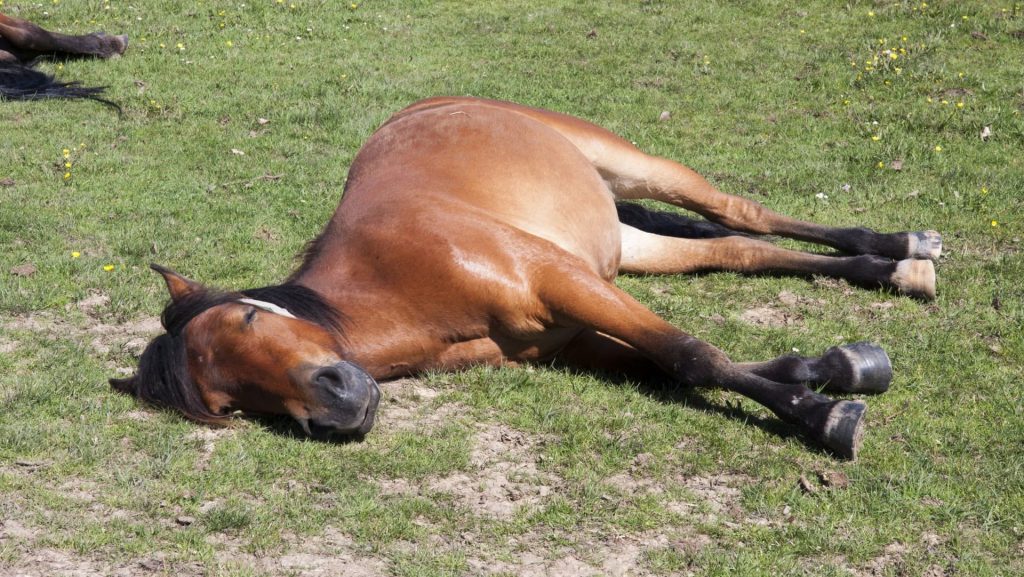Horses are known for their graceful and majestic appearance, but have you ever wondered if they ever sleep? And if so, do they sleep standing up? I was asked this question by my grandad and so wanted to explore the fascinating world of equine sleep and answer some common questions about how horses rest.
How Do Horses Sleep?
Horses have a unique way of sleeping. They are able to sleep standing up using a locking mechanism in their joints, known as the stay apparatus. This allows them to relax their muscles without falling over. However, they also need to lie down to achieve REM (Rapid Eye Movement) sleep, which is essential for their physical and mental health.
How Long Do Horses Sleep?
Horses require between two to four hours of sleep per day, with most of this sleep occurring in short intervals of around 15 to 20 minutes at a time. They also need to achieve REM sleep for at least 30 minutes to an hour each day, which is why they need to lie down occasionally.

When Do Horses Sleep?
Horses are crepuscular animals, which means they are most active at dawn and dusk. They tend to sleep during the day and night in short intervals, but are always alert to any potential danger, which is why they can sleep standing up.
How Can You Tell if Your Horse is Tired?
Horses may show signs of fatigue, such as droopy eyes, lack of appetite, or irritability. However, it’s important to note that horses are prey animals and may not show overt signs of tiredness or weakness, as this can make them vulnerable to predators.
How Can You Help Your Horse Sleep?
To help your horse get the rest it needs, it’s important to provide a comfortable and safe environment for them to sleep in. This can include a soft and dry bedding, a quiet and low-stress area, and access to fresh water and food. It’s also important to allow your horse to lie down and rest when they need to, as this is essential for their REM sleep.
Horses are unique creatures that have adapted to sleep standing up, while still being able to achieve the deep sleep they need by lying down. As a responsible horse owner, it’s important to understand their sleep habits and provide them with a suitable environment that allows them to rest and recover.



